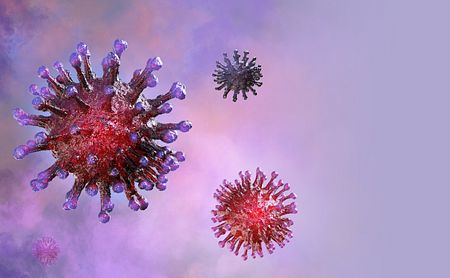UK Survey: Risks of Severe Outcomes from COVID-19 Not Increased Significantly
Written by |

The risk of severe COVID-19 outcomes does not appear to increase in people with Dravet syndrome, although they still may need additional medical attention, according to the results of a recent survey in the U.K.
Results of the survey, “The impact of COVID‐19 in Dravet syndrome: A UK survey,” was published in the journal Acta Neurologica Scandinavica.
The COVID-19 pandemic presents difficult challenges to people with Dravet syndrome and other epileptic disorders, who often have other medical conditions (comorbidities), less access to healthcare services, and increased stress, in addition to the risk of infection itself.
Although the U.K. does not place epilepsy in the “extremely vulnerable” category of people with the greatest risk of severe illness from COVID-19, individuals can be classified as such based on clinical judgment and an assessment of their needs.
The authors of the study, from University College London, argued that more guidance is needed, concerning people with severe epilepsies.
To understand the risks, impact, and outcomes of COVID-19 among people with Dravet syndrome, they conducted an anonymous online survey from June 17 to July 13.
They collected 116 responses, comprising 86 families of children and 30 adults with Dravet from different parts of the U.K. and one from Ireland.
The majority (106, or 91%) were shielded during lockdowns, meaning that they stayed in their home and minimized face-to-face contact. Nine others stayed in a residential home and one stayed at their family business.
Fifty respondents received “extremely vulnerable” status, for risk of severe COVID-19, while 47 neither received nor requested this designation. Ten participants had requested, but not received, the status, and nine were uncertain of the status of their child.
At least three respondents not classified as “extremely vulnerable” reported shielding regardless.
Several people reported comorbidities that could potentially increase their risk for severe forms of COVID-19. These included recurrent chest infections (28 individuals), swallowing difficulties (25), and spinal abnormalities such as scoliosis and curved or twisted spine (33), ranging from mild (24) to severe (two).
In all, 22 respondents (19%) reported symptoms compatible with COVID-19, including high temperature, difficulty breathing, shaking with chills, and the loss of taste or smell.
Ten individuals reported coming into contact with people who displayed COVID-19 symptoms, six of whom then developed symptoms themselves.
Four people with symptoms had a polymerase chain reaction (PCR) swab test, none of which returned positive. One symptomatic person had a positive antibody test and another, although asymptomatic, tested positive three times while in hospital for renal failure related to his epilepsy therapies.
Five of those showing COVID-19 symptoms reported more frequent and longer seizures, six reported more frequent, but not longer, seizures; nine reported no change in seizure frequency or length.
“Interestingly,” the researchers wrote, “the person asymptomatic for COVID‐19 who repeatedly tested positive on swab testing was reported to have reduced seizure frequency at the time of testing.”
Nine individuals needed medical attention for their COVID-19 symptoms, including intensive care and oxygen treatment and/or ventilation.
Although no significant difference in the prevalence of symptoms appeared between children and adults, children developed more severe symptoms.
In open comments, respondents described parental anxiety related to shielding, such as risks to carers and family members; anxiety toward hospital attendance, and lack of support during lockdown.
Conversely, one family reported a positive experience, as their child enjoyed having their parents as the only carers and received support from a mental health team via frequent video calls. One family reported fewer seizures during lockdowns, possibly due to fewer infections and less school-related stress.
Although prospective studies might shed more light on these results, the researchers concluded that their study “provides additional evidence that risk of severe outcomes of COVID‐19 in people with [Dravet syndrome] may not be significantly increased, although medical attention may still be required.”





